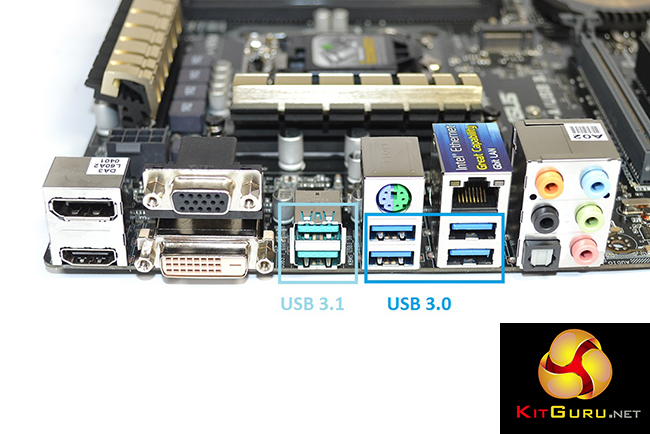Our hands-on experience with Asus‘ USB 3.1 implementation on the Z97-A/USB 3.1 motherboard has been extremely positive. Asus' testing guide advises reviewers to disable CPU C-states and Intel SpeedStep in the BIOS, and once this has been completed the USB 3.1 ports operate at full speed without any hassle. They simply work, and the accompanying USB 3.1 Boost software is well-implemented too.
There's no denying that USB 3.1 is still very much in its infancy. That said, many of the primary motherboard vendors are just weeks away from releasing an entourage of USB 3.1-equipped parts, there's talk of a USB 3.1 MacBook, and the relevant drive enclosures are certain to follow soon after. So that leaves us eagerly waiting for implementation of USB 3.1 ports by case manufacturers.
We aren't saying that USB 3.1 adoption will be quick. But if you are in the market for a motherboard at this very point in time, considering a product with the 10Gbps connector may be sensible from a ‘future-proofing' perspective (as much as I hate using that term).
Reports suggest that SSD prices are going to drop significantly towards the end of 2015 and 4K content, not to mention sizeable game installs, is ensuring that file sizes continue to grow. USB 3.1 provides transfer rate potential that is high enough to warrant an SSD-to-SSD configuration for users who regularly transfer large amounts of content across computers in their home.
Discuss on our Facebook page, over HERE.
KitGuru Says: Combining data from our testing of Asus' Z97-A/USB 3.1 motherboard and that of MSI's engineering sample, USB 3.1 looks to sport the potential of around an 80% boost in sequential transfers as of today (ASM1142 USB 3.1 vs Intel 9-series PCH USB 3.0). That, I'm sure we can all agree, is a good thing for our ever-demanding storage and speed requirements.
 KitGuru KitGuru.net – Tech News | Hardware News | Hardware Reviews | IOS | Mobile | Gaming | Graphics Cards
KitGuru KitGuru.net – Tech News | Hardware News | Hardware Reviews | IOS | Mobile | Gaming | Graphics Cards




I think I’ll wait until motherboards come with the proper USB 3.1 Type-C connector.
I do not like how all these connectors are getting smaller myself Type A is a good sturdy plug and socket
Type C is just the other end of the 3.1 cable for phones etc. The full sized USB 3.1 port will remain the same as you can see on this mobo. http://www.usb.org/developers/docs/
Are you sure about that? There will be motherboards and PCIe cards that have the USB 3.1 Type-C connector. One of which is pictured below.
The Type-A connector seems like a stop-gap solution to me since desktop PCs would also benefit from having Type-C USB 3.1 ports. Higher power delivery is one such example.
From AnandTech…
http://www.anandtech.com/show/9004/asus-goes-usb-31-motherboards-pcie-cards-and-enclosures-tested
don’t understand why 4k is locked to no more than 40-50MB/s ? why is that
Seems a lot of the front panels out there at the moment with a type c connector are fake.
It’s a type c in appearance but uses the same power connector for the usb 3 ports so there is no way the port can get any where near the 10gb’s and i did notice that these manufacturers do not mention the transfer rate of the type c and merely tell you the transfer rate of the usb 3 is 5gb .
I have an Asrock z270 motherboard and it already has a built in type c on the rear panel so i guess it’s transfer speed is 10gb but then again is it ?
I will wait because there seems so much confusion and smoke and mirrors regarding the type c implementation and its speed .
Anyway i hooked my 6P phone to the type c connector and my software stalled and had trouble recognising that a phone was connected and could not transfer files but acted as a charger only.
I double checked using a usb 3 to type c cable from the computer to my phone and every thing behaved as normal so as I said it seems at the moment that manufacturers are jumping the gun with the type c connector to computers and fooling consumers in the process as to the true transfer speeds.